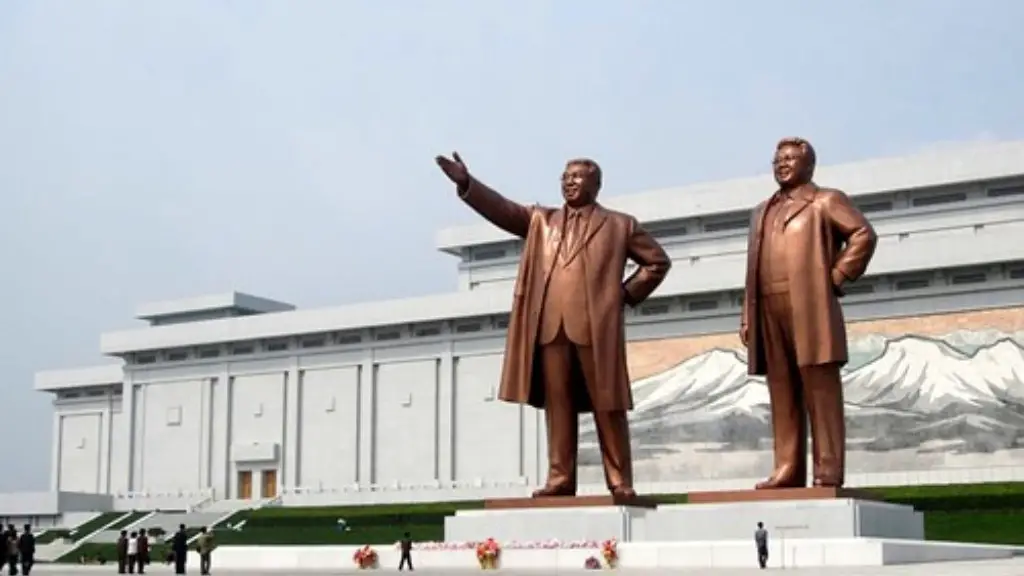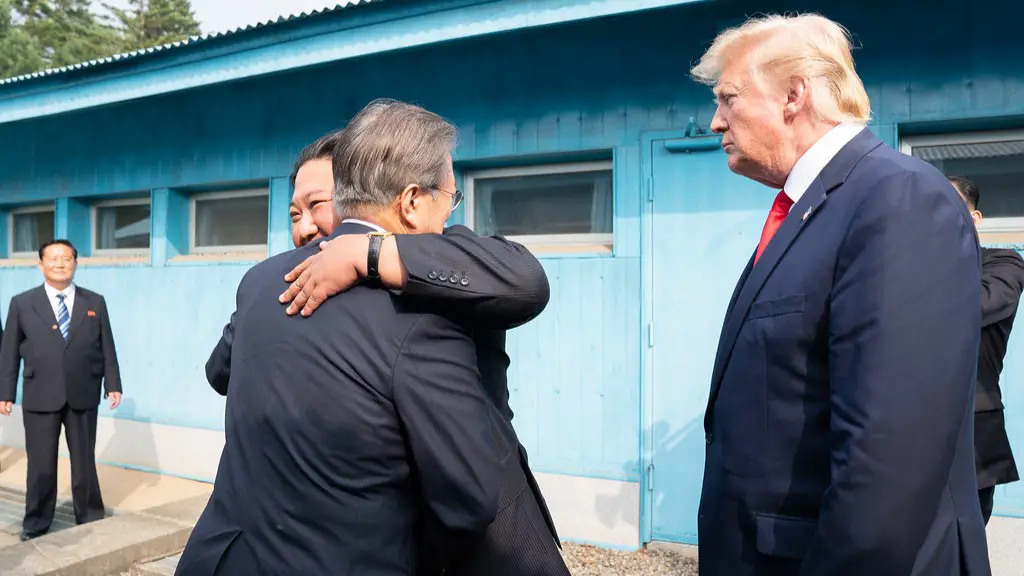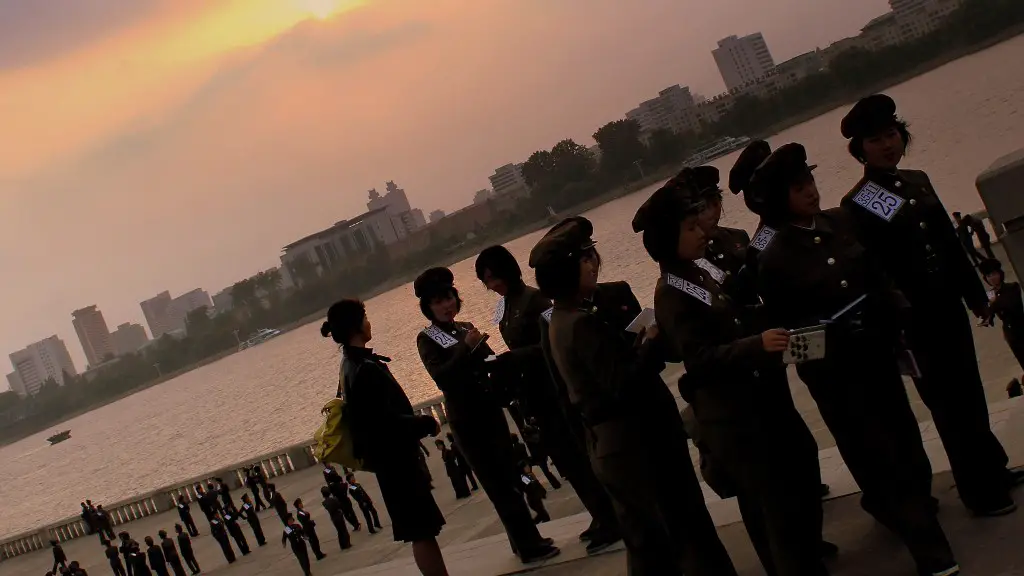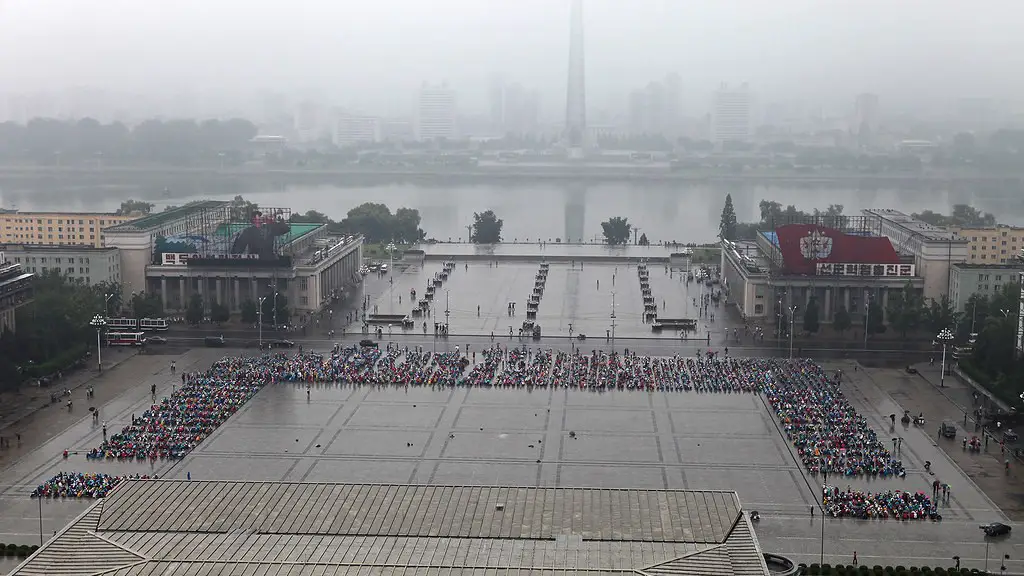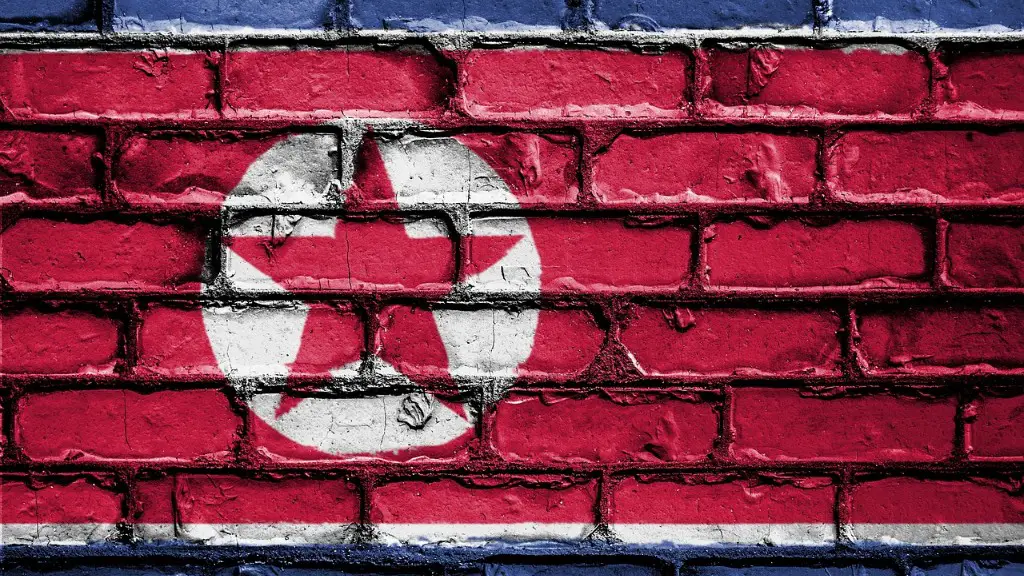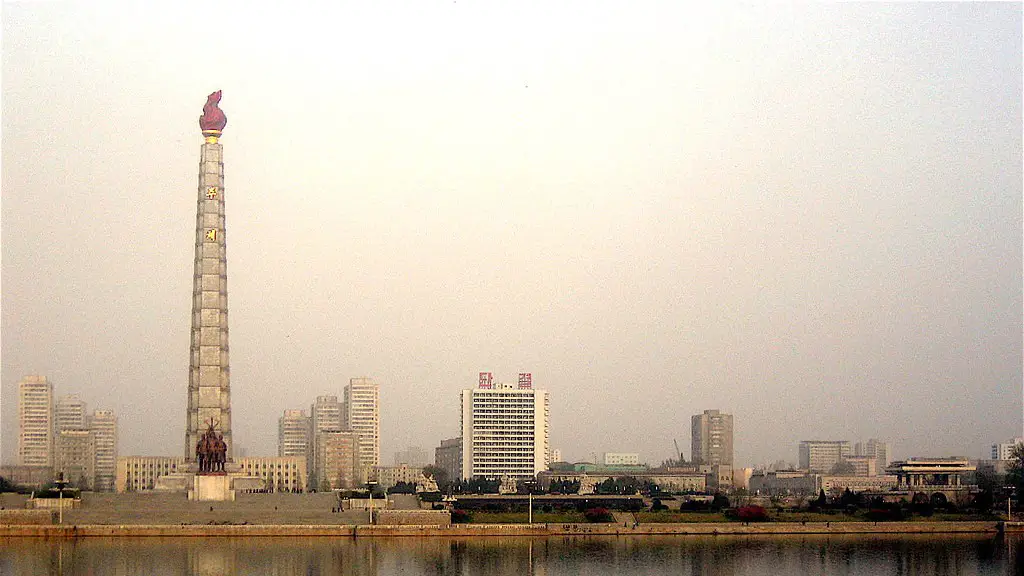North Korea remains one of the most isolated countries in the world, with a deeply impoverished population. Though this state of affairs has persisted for decades, few understand precisely how the nation ended up in this position. A closer look shows that the North Korean government and its policies of isolation, as well as the country’s checkered history, are the primary causes for its underdevelopment and poverty.
To begin, North Korea is one of the few officially Communist nations left in the world. This means that the bulk of its economy is run by the state, and the informal market economy is highly regulated. The government has also maintained tight control over information, media and travel, leading to a severe lack of foreign influence and investment. Even today, with limited access to outside resources, most North Koreans rely on the state and its food rations to survive.
Furthermore, North Korea’s relationship with the outside world has steadily deteriorated over the years. Following the dissolution of the Soviet Union, the country cut off diplomatic ties with many of its traditional allies. This, coupled with the increasing tension between the Kim regime and the United States throughout the late 20th and early 21st centuries, meant that North Korea was even further isolated from the rest of the world.
It is important to note, however, that North Korea’s poverty and isolation can also be traced back to its own government’s past policies. In the early years of the regime, the emphasis on heavy industrialization caused a significant decline in the agricultural sector. This lack of investment meant that many North Koreans found themselves without jobs and with limited access to food and other necessities for some time.
In addition, North Korea’s nuclear program, which has been active since the 1990s, has been a source of tension and conflict with the international community. While the regime has held on to its nuclear capabilities, the sanctions against the country have had a crippling effect on its already fragile economy.
Finally, the human rights situation in the country has long attracted international condemnation, with the United Nations declaring that the North Korean government has committed “crimes against humanity”. In addition, as the nation remains economically strapped, the standard of living is poor, and access to basic services and amenities are generally inadequate.
Global Isolation
North Korea’s persistent isolation from the global community has been a major contributor to its impoverished state. With the establishment of diplomatic ties with China and Russia in the 1950s, the country was able to maintain some semblance of international recognition, though it was largely excluded from many other nations. This led to North Korea being isolated geographically, strategically and diplomatically.
This isolation has meant that North Korea has been unable to take advantage of many of the opportunities available to other countries, such as foreign aid, investment, education and technological advancement. As a result, the country has been unable to keep up with global developments and has fallen severely behind in terms of development and economic growth.
Furthermore, the regime’s habit of aggression and threats of military action against its neighbors have not been viewed favorably. These continual acts of hostility, combined with sanctions imposed by the international community, have had crippling effects on the North Korean economy and have hindered the development of the country.
Finally, North Korea’s leaders have consistently refused to engage with the international community in meaningful dialogues, further ensuring that the regime remains burdensomely isolated. This attitude has made the nation a pariah in the eyes of the international community, leading to even less global support for the nation.
Economic Struggle
North Korea’s economic situation has long been regarded as one of the worst in the world. The decline of the agricultural sector coupled with the restrictions the state has imposed on the informal market economy has resulted in the nation having one of the lowest GDPs in the world. In addition, the sanctions imposed on the country have had a severe negative impact on the economy, making it difficult to find machineries, materials, and other supplies from abroad.
Furthermore, the lack of investment in the country has meant that North Koreans have had little access to modern technologies and services, a factor that has significantly contributed to the nation’s underdevelopment. Issuing citizens with mobile phones, for example, has been met with extreme resistance from the government, as it goes against the idea of the state having full control over the spread of information.
The Korean economy also has high levels of inflation, meaning that buying power is relatively low. This, combined with the fact that there is little foreign investment and aid, has caused a significant decline in the quality of life for many North Koreans, with the majority of citizens living in poverty.
In addition, North Korea is heavily dependent on the international donations of food and medicine. While this has saved countless lives, it is not a viable long-term solution, and has been viewed by some as an act of charity that perpetuates the existing system and undermines the nation’s ability to solve its own issues.
Political Repression
North Korea is among the most authoritarian and repressive countries in the world. Since its founding under Kim Il-Sung in 1948, the nation has been characterized by a highly centralized and oppressive government. All political power is concentrated in the hands of the Supreme Leader, who presides over a heavily militarized society.
The North Korean government is intolerant of any form of dissent and opposition, and is often criticized for its human rights violations. Political repression by the authorities is extensive and oppressive, and North Koreans are subject to government surveillance and censorship, with those who criticize the regime often facing harsh punishments.
The government also maintains control over the media, allowing only news that conforms to the regime’s policies to be broadcast. This has meant that the North Korean people are largely unaware of the outside world and what is going on beyond the borders of their own country. Consequently, they have very few sources of information, making it even more difficult for the citizens to make informed decisions.
The impact of such repression has been felt in many aspects of North Korean society. With no way to protest or express dissent, citizens have been left helpless and unable to act on the issues that affect their day-to-day lives. This lack of political freedom has had far-reaching consequences for North Korean citizens and has been a major factor in the country’s persistent poverty and isolation.
International Sanctions
The international community has long imposed sanctions on North Korea in response to its nuclear program, military aggression and human rights abuses. These sanctions, which target key sectors of the economy such as finance, shipping and trade, have had a severe effect on the nation, reducing its access to resources, technology and materials from abroad.
The effects of such sanctions have been felt in all aspects of North Korean life, with citizens suffering from the shortage of goods, food, and medicine. For example, the UN estimates that around 18 million North Koreans are undernourished, and the country’s healthcare system is severely underdeveloped.
In addition, the sanctions have severely limited the nation’s ability to develop its economy, with companies unable to access capital or expand operations. This, in turn, has led to a high unemployment rate, with many North Koreans struggling to find stable employment and income.
Finally, the sanctions have severely limited North Korea’s access to the global market, impeding its ability to engage in international trade. This has had a particularly noticeable effect on the nation’s economy, further deepening its poverty and underdevelopment.
Social Implications
North Korea’s isolation, underdevelopment and poverty have had a drastic effect on its citizens, with many living in abject conditions. The lack of resources, technology and access to international markets has meant that most North Koreans exist in a state of extreme poverty, with limited access to clean water, food and medical supplies. Furthermore, the threat of violence and repression by the authorities has caused many to live in fear and prevented them from speaking out or taking any kind of action against the regime.
The lack of access to secondary education has affected the livelihoods of many North Koreans, as many face difficulties finding work and are unable to better their economic situation. In addition, the lack of investment in the healthcare system, combined with limited access to medical supplies, has been a major factor in the nation’s high mortality rate.
The situation has been further exacerbated by the international community’s lack of response. With the exception of food and aid donations, there have been almost no other interventions, leaving North Koreans to fend for themselves in the face of the nation’s dire situation.
Finally, with the growing tensions between the United States and North Korea, there is a fear that the situation may escalate further, leading to an even greater deterioration in the standard of living for the country’s citizens.
Conclusion
It is clear that North Korea remains an isolated and impoverished nation, with the bulk of its citizens living in abject poverty. While the causes of the nation’s situation are complex and varied, the primary factors are the repressive policies of the regime, the international sanctions, and the nation’s declining relationship with the rest of the world.
As such, it is evident that there must be a concerted effort to find a solution to the issues facing North Koreans in order to break the cycle of isolation, underdevelopment and poverty. This, however, will require the cooperation of the international community, as well as the North Korean government, in order to ensure that the North Korean people can finally lead a life of dignity and prosperity.
